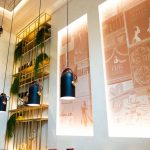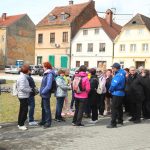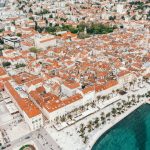May 10, 2020 — The coronavirus pandemic took a toll on a culture used to informal gatherings, family meals, and hours spent philosophizing over a single macchiato. Croatians miss socializing, excursions and trips, and coffee in cafes, according to a recent poll gauging the general mood during the pandemic.
A survey conducted in early May by the Hendal Agency and Franck showed Croats citizens missed spending time with loved ones the most (78 percent), trips and travels (48 percent), and drinking coffee in cafes (44 percent).
The coronavirus epidemic has negatively affected 87 percent of citizens, mostly the inhabitants of Dalmatia, especially emotional life. The last few months since the epidemic upended daily live caused dissatisfaction in 53 percent of respondents. Others felt anger (29 percent) and sadness. (29 percent).
For men, the epidemic mostly caused boredom, for women, sadness. As many as 34 percent of citizens, primarily men, state that the epidemic and restrictions that came with it have caused boredom in their daily lives, while 28 percent felt lonely. Sadness also took hold, especially emphasized by women who took part in the poll.
About a third of respondents (34 percent) try to maintain a positive attitude and hope that life will return to normal soon.
That Croatian citizens are looking forward to the easing of restrictive measures and the reopening of cafes and terraces is shown by the 47 percent who said they will visit a cafe next week to drink a coffee, while a third say they will wait until the pandemic blows over completely. Dalmatians especially are looking forward to drinking coffee in cafes, with 65 percent saying they will first order coffee when they finally sit down at a cafe.
The crisis caused by the coronavirus did not have a significant impact on the habits of 63 percent of citizens when it comes to coffee drinking rituals, as evidenced by the 66 percent of citizens who normally have the habit of visiting cafes and will continue this habit after the epidemic ends.
During the restrictions, 47 percent of coffee lovers said coffee remained a part of their daily ritual. Only the place where they drank changed.
Hendal’s earlier research, also conducted in collaboration with Franck, in October last year showed that Croatia is a country of coffee drinkers and “let’s go for coffee” is still by far the most common invitation to socialize among Croats, with 87.5 percent using it as an excuse to socialize.
The most popular types of coffee are ground Turkish coffee and espresso in a cafe that is drunk by almost 70 percent of respondents. When coffee is mentioned, 28 percent of citizens cite morning as the first association, 16 percent waking up, 15 percent think of its smell.









